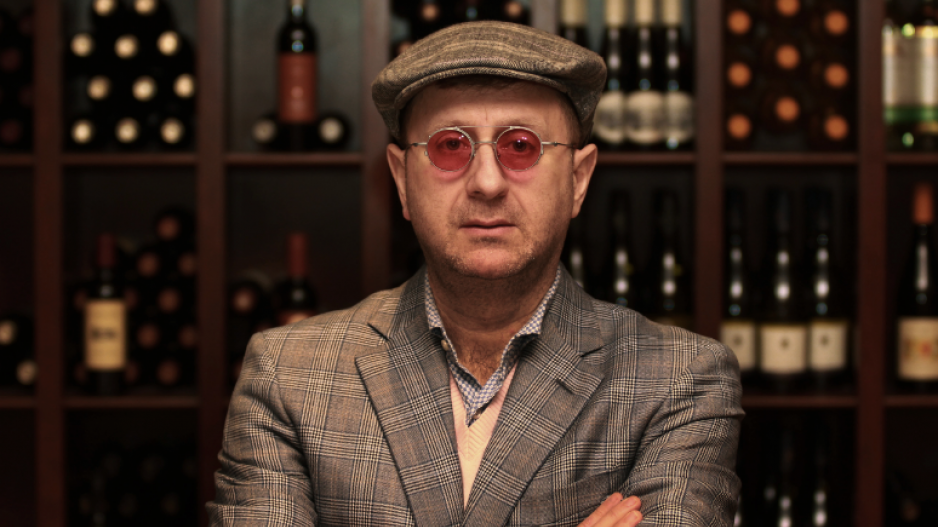Restaurateurs have lobbied for decades to be allowed to buy wine, beer and spirits for less than B.C. government liquor store retail prices, but those efforts have turned out to be in vain.
On April 1, the BC Liberal government is making the biggest overhaul in decades to how alcohol is sold in the province, but despite various recent moves intended to improve liquor regulations for restaurateurs, they’re among businesses that feel the most ignored and angry.
For example, they’ll continue to be forced to buy exclusively from British Columbia Liquor Distribution Branch (BCLDB) stores at the full retail price plus 5% goods and services tax.
Other changes, restaurant owners say, will add bureaucracy.
“The premier has left us out to dry,” said Emad Yacoub, whose The Glowbal Collection owns eight restaurants, including Black + Blue, Coast and Italian Kitchen. “She listened to every lobby group but the restaurants. Then, she throws us a little bone with [the freedom to have] happy-hour pricing, thinking she will make us happy, but happy hours don’t do much for the restaurant business.”
Yacoub told Business in Vancouver that during the consultation phase government officials led him and other restaurateurs to believe that they understood restaurateurs’ argument that lower liquor prices in restaurants would spur spending to help the economy, stimulate tourism and increase government tax dollars.
“Any time we met with anyone, they would say, ‘Yes, we understand,’” Yacoub said. “The people who are getting screwed are the [restaurants’] customers.”
Cioppino’s owner Pino Posteraro agreed.
He said that, at the very least, the government could have allowed restaurateurs to buy wine directly from B.C.’s 12 independent wine stores or other alcohol from the province’s 670 private liquor stores.
After all, Attorney General Suzanne Anton, who is in charge of the liquor law changes, has stressed that her new system of a single wholesale price for all retailers will create a level playing field (see “Wholesale pricing to be a major change ...” below).
Posteraro questioned how the playing field will be level if retailers aren’t free to compete for restaurants as clients.
Restaurateurs want the option to buy from private alcohol retailers because volume purchases could persuade them to give restaurants price discounts.
BCLDB stores don’t give discounts regardless of how much a restaurant or bar buys.
Anton said there would be some BCLDB retail revenue loss were restaurants permitted to buy from private operators.
“That’s an important source of revenue for government,” she told BIV. “It always has been, so we’re leaving it as is.”
Posteraro’s other concern is that, after April 1, the BCLDB will more rigidly enforce its requirement that anyone who is returning a bottle of tainted wine do so at the store where they bought it and have the original receipt.
New restrictions impose time limits that require restaurateurs to return wine within a year of purchase. The general public will have a maximum of 60 days to bring back spoiled wine.
Posteraro estimated that he has approximately $3.2 million worth of wine in his cellars, and much of it can age for up to 10 years.
“They’re going to make it more difficult,” he said. “They want me to go back and find receipts and do the return at the store where I bought it. That’s totally nonsense. It’s more paperwork for us.”
BCRFA optimistic more changes are on the way
British Columbia Restaurant and Foodservices Association CEO Ian Tostenson’s biggest concerns with the B.C. government’s liquor law changes are that they were poorly communicated and instituted to coincide with the end of the government’s fiscal year instead of at a pace that would have allowed them to be done right.
Nonetheless, he is taking a diplomatic approach and remains convinced that future liquor law changes to provide at least a partial wholesale discount and the ability for restaurateurs to buy from private stores could come in the next year or two.
“Once we’ve got the April 1 changes settled, I think the government will be in the mood to look at other changes that strengthen small businesses. That’s where our opportunity is.”
Tostenson praised some of the government’s liquor law changes in the past few years that have helped restaurants.
Last June, restaurant owners were permitted to change drink prices during the day. The initiative to create “happy hours” came in tandem with minimum pricing, which critics derided because in some cases the new pricing meant that restaurateurs had to raise drink prices at all times of the day.
Still, for most restaurants, the change provided opportunity, and happy-hour signs are now common throughout Metro Vancouver.
Tostenson also applauded changes that blur the distinction between liquor-primary and food-primary licences for pubs and restaurants. Restaurateurs can now serve drinks to customers who don’t order food and pub owners are free to welcome underage customers who are accompanied by an adult as long as the pub sells food.
One change last May freed restaurant or pub owners to store alcohol offsite. Therefore they can now use lower-cost lease space across town. The change also allows them to stockpile larger inventories for wine-aging or to ensure adequate supply of products prone to being out of stock.
“You still have to tell the BCLDB where you’re keeping [the alcohol] as it’s still a controlled substance,” Anton explained to BIV. “But rules like this make things easier for business.” •




